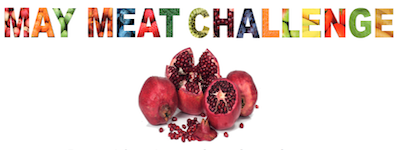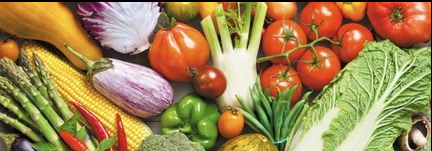May Meat Challenge: Last Day Final Thoughts
2 views
Skip to first unread message
Emerald
May 31, 2021, 10:29:35 AM5/31/21
to Earth Action Campaign
This
is an ongoing thread for the May Meat Challenge Campaign. Thank you to everyone who has been writing and responding. Feel free to continue sharing your tips, experiences and recipes.
Please keep this same subject line so that people can choose if they want to read it and participate.

MAY MEAT CHALLENGE - FINAL THOUGHTS
On this last day of the 2021 Challenge, what have we learned about climate-friendly eating?
The May Meat Challenge is a request that people consider eating an 80-100% plant-based diet that is organic and local with sustainable packaging. For people who consume animal products we ask that you make your purchases from local farmers and ranchers who sequester carbon by composting, field rotating, and no till. Find out where your food comes from and research those sources. Eating higher quality animal products is more expensive but better for your health as well as better for the environment. By reducing the amount you can keep your same food budget and enjoy better choices.
We have been learning about plant-based eating including nutrition and recipes. We also learned about where many of these foods come from and how they are processed such as cashews, coconuts, and almonds. Many of the plant-based packaged foods are full of ingredients that are intentionally deceiving (there are about 20 different names for MSG such as yeast extract). Most commercial plant-based foods have natural flavors that are based on food but chemicalized into a neurotoxin. They are designed to create an excited response in the brain leading to food addiction and cravings. It's important to read the labels, but the packaging alone is a deterrent for climate-friendly eating.
USDA Organic is 95% organic. The only way to know if a product is free of toxic ingredients is to know if you can trust the company that made it. This is true for USDA Organic meat as well. Meat is being imported from Argentina and labeled as grass-fed and organic when it is not. If you are eating USDA Organic you are not eating organic. If you are getting a CSA (Community Supported Agriculture) produce box from a farm you trust - that is organic. You can ask at the farmers market how they handle pests on their farm. If they tell you a long story about all the things they do then they are probably telling the truth. If a farmer is vague about their pest management techniques then they might be 95% organic - just enough to get the USDA approval. And, did you know that you can buy USDA Organic stickers by the roll at Amazon? It is very easy to lie about organic. Look for CCOF and Oregon Tilth for more reliable organic.
We learned that the best way to know that your food can be trusted and to embrace zero waste practices is to make food from scratch. Plant-based milk is one of the easiest things to make but we also shared recipes for cream, sour cream, nacho cheese, Alfredo sauce, mac & cheese, queso dip, butter and yogurt - all homemade, easy to make, cheaper than commercial, and much more nutritious.
If you are embracing 80% - what is in your 20%?
Everyone is making the world a better place in their own way. Food and eating is a very personal thing. Some people don't want to discuss their diet at all. Respect. Also consider that as we get older it's a good idea to eat age-appropriately. Adult decisions for an adult body. Many people make their food decisions based on flavor and taste only. If we did that to our cars they wouldn't run for a day. When we do that to our bodies they decline more gradually. What is the fuel that feeds your body? Is your body happy with your 20%? Leeway changes over time. Healthy people are also better for the environment than people who aren't. Have you ever seen how much plastic and single-use waste is used on every single patient in a hospital? One tall kitchen trash can per person per day in the hospital. Staying healthy is climate-friendly.
Did you learn any new practices this month that you would like to continue? How has this Challenge impacted you? Have you been thinking about the carbon impact of your foods? Have you considered how your diet might be impacting your health?
The May Meat Challenge is an annual 31-day campaign but the information is posted permanently at https://OccupySonomaCounty.org/MayMeatChallenge. Our Shopper's Guide can be found at https://ocsoco.org/?q=gmo-heroes.
We would love to have your feedback. Was this useful? Was it fun? What did you learn?
What climate-friendly changes do you plan to keep?

https://OccupySonomaCounty.org
(en español)
(en español)
Occupy
Sonoma County embraces the egalitarian, deep democracy principles of
the Occupy Movement with a regional strategy for effectively organizing
countywide social justice campaigns that are globally relevant.
Reply all
Reply to author
Forward
0 new messages
